

Decades after war erupted on its streets, Medellín has become a hub for youth culture, and Lauren Luxenberg’s “Touching Ground” lenses the skateboarding community to explore the traditions, rituals and everyday moments that bring the city to life. Here, Luxenberg and local skateboarder and artist RonnieWTF tell Joe Zadeh how the project came to life, and how they explored the city’s rebirth through the eyes of the its skaters.
Lauren Luxenberg hadn’t planned on visiting Medellín. The Canadian-British photographer was on a solo journey across Chile and Argentina riding horseback through the Andes when a friend convinced her to pay the Colombian city a visit. “I didn’t really know anything about it until I arrived,” says Luxenberg. She made friends with some local artists, and started to take photos of the people she met in the street, usually creatives of some ilk. “There was such a huge community of people in the city that were creating and collaborating in ways I’d never really experienced before,” she says.
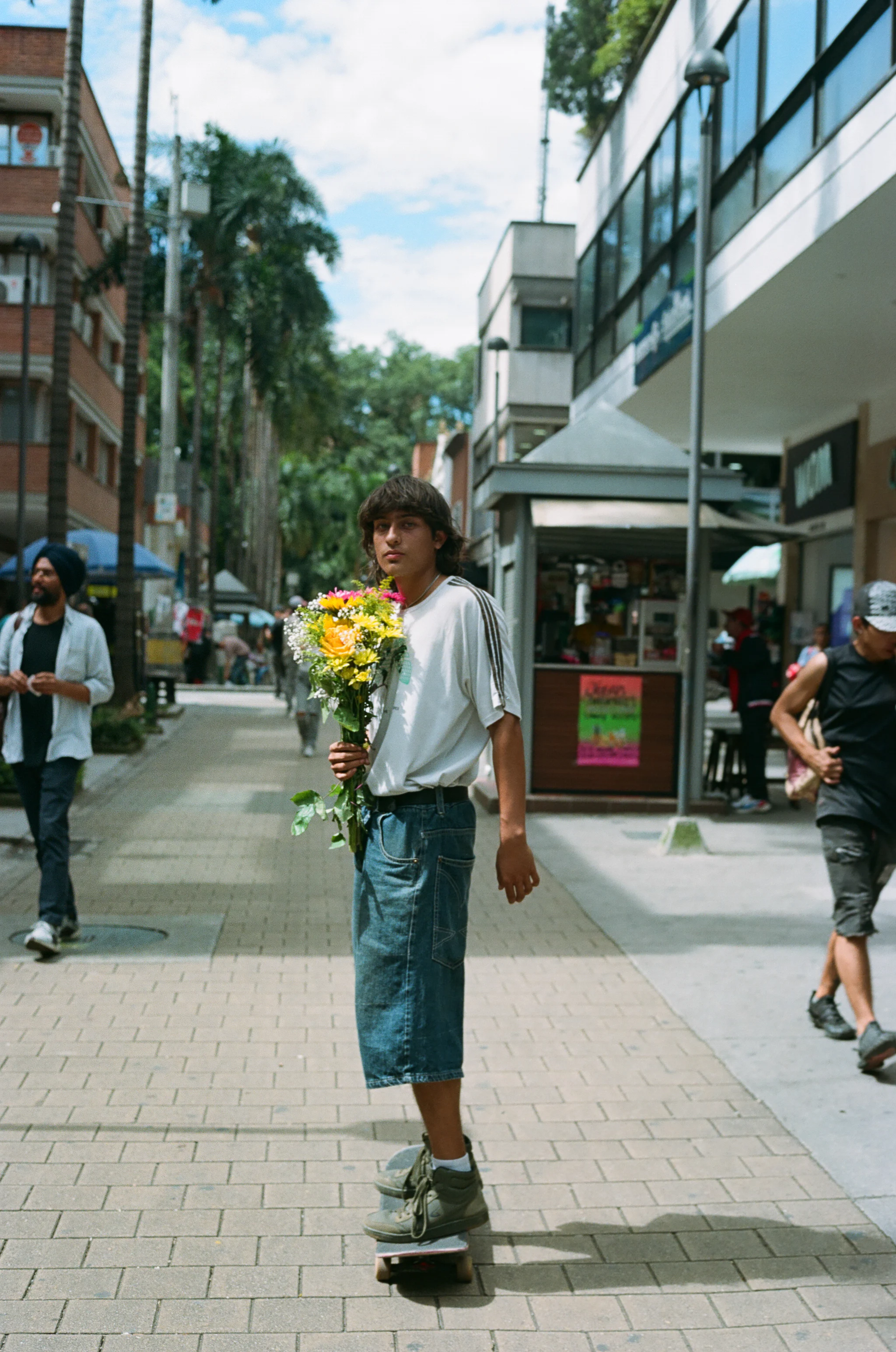

Luxenberg put on an exhibition of her photos in the city, inviting everyone she had encountered along the way. That was the moment when she first got to know Ronnie. Ronnie was a local skateboarder, artist, musician, model and all-round creative live wire, also known as WTF Ronnie. “He had such a unique energy. There was this bright, magnetic and charismatic energy about him—he really drew people together,” she says. Luxenberg continued to visit Medellín repeatedly over the next five years, for longer and longer durations, and her friendship with Ronnie deepened. She visited his family for new year, and learned how to dance to cumbia and make empanadas. “We opened up about our lives. And he told me had this dream of somehow capturing his community in the city, and also telling the story of his life,” she explains. “We decided to work on something together.”

Their relationship blossomed into “Touching Ground,” a rich and multifaceted project that aims to tell a contemporary documentary-style story about Medellín through a photo book, film and live events. Via the prism of skateboarding culture as a means to traverse the city’s streets, hangouts and neighborhoods, it uses intimate portraits and personal storytelling to touch on something much deeper, about this historically troubled yet resolutely vibrant metropolis, and the traditions, rituals and communities that keep it ticking.


Luxenberg follows the skaters from their homes to the spots they frequent across the city, capturing their journeys alongside images of Medellín’s urban and natural landscapes—from flowers pushing through cracks in the concrete to the mountains that engulf the city. By placing these skaters in dialogue with their environment, “Touching Ground” explores how their energy and culture ripple through Medellín, emphasizing the positive impact they have on both the city and each other.
“It started as just one photo shoot, but then it really snowballed,” says Lauren. Once Ronnie told his skateboarding friends to meet them in the city for a shoot, those skaters invited their friends, who invited their friends, and soon they were traveling all over Medellín to capture everyone who wanted to be involved. Luxenberg shot skaters in cafés, carparks, churches, barrios, religious icon shops, florists and even while one of them worked a shift selling vegetables in the city center. “That one original shoot became eight days of shooting and filming in all different formats,” she says. The project takes us on a visual journey through the various barrios in Medellín. “We ended up creating a kind of unofficial guidebook for the city,” Ronnie says.
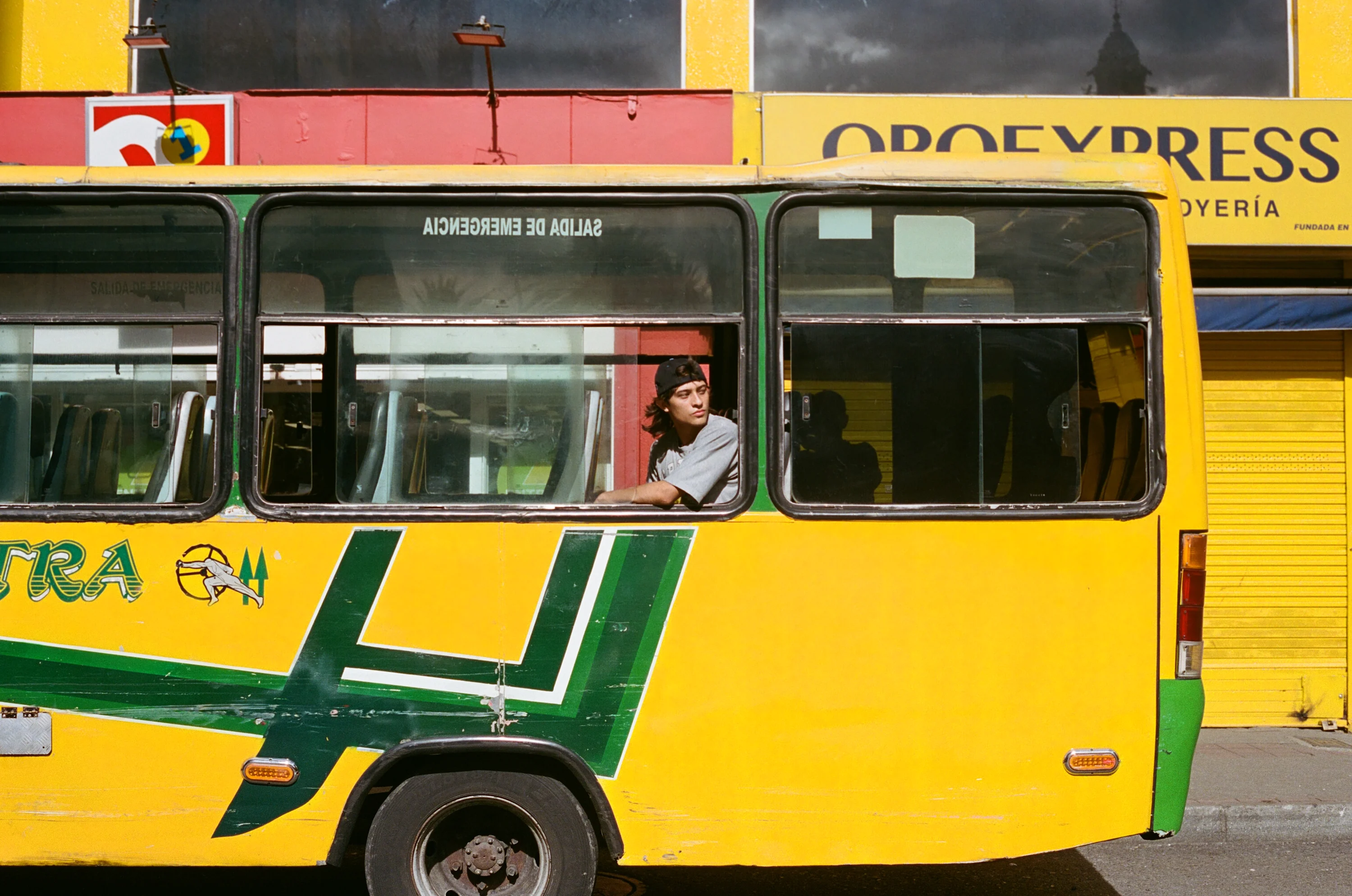
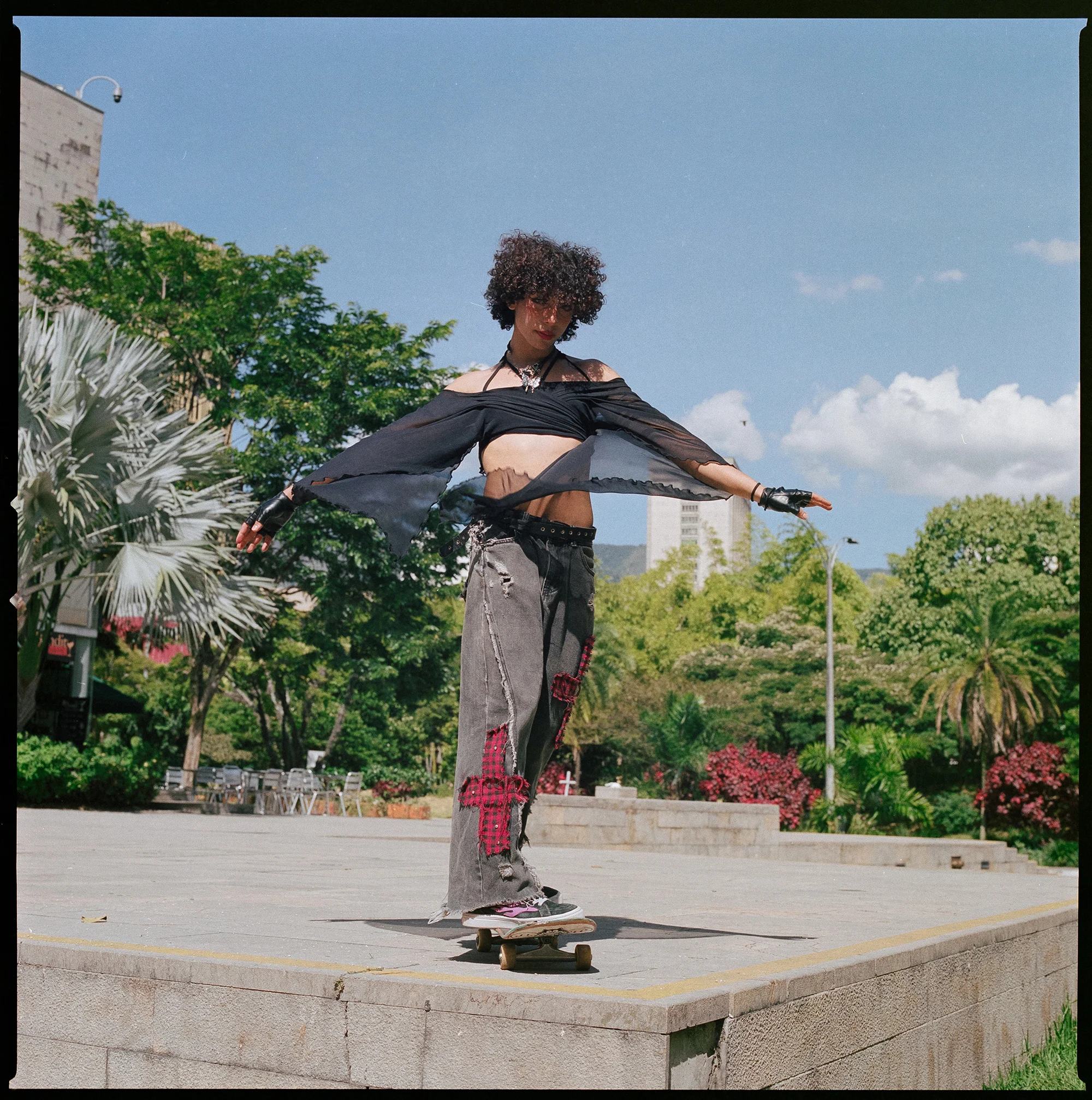
While the imagery is bursting with life, power and personality, the stories behind each picture are more complex. “Medellín is a city of contrast; light and dark,” says Ronnie. “Everyone here calls it ‘la ciudad de la eterna primavera’ (eternal spring)—it’s like a paradise because of the nature, mountains, animals, birds, flowers, food and people. Nature grows here in places you would never expect it to grow—and it’s the same for the people. This was once one of the most dangerous cities in the world, but it’s also a magical and beautiful place. You know this phrase, ‘realismo mágico’ (magical realism)? Medellín feels like that… the problem in Colombia is that because it is so magical and beautiful, different groups have always wanted to steal it for themselves. And with all this beauty, comes war.”
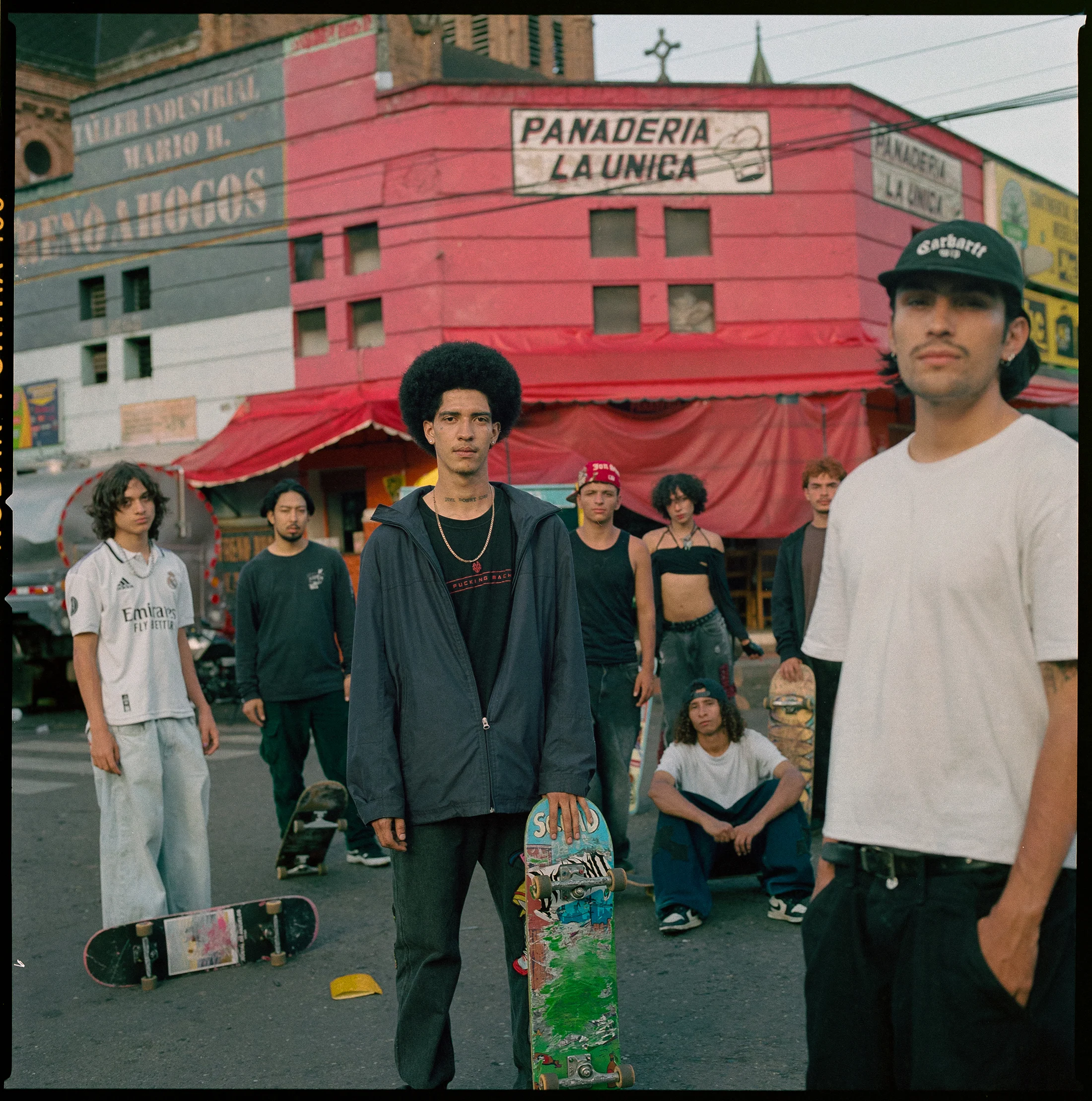
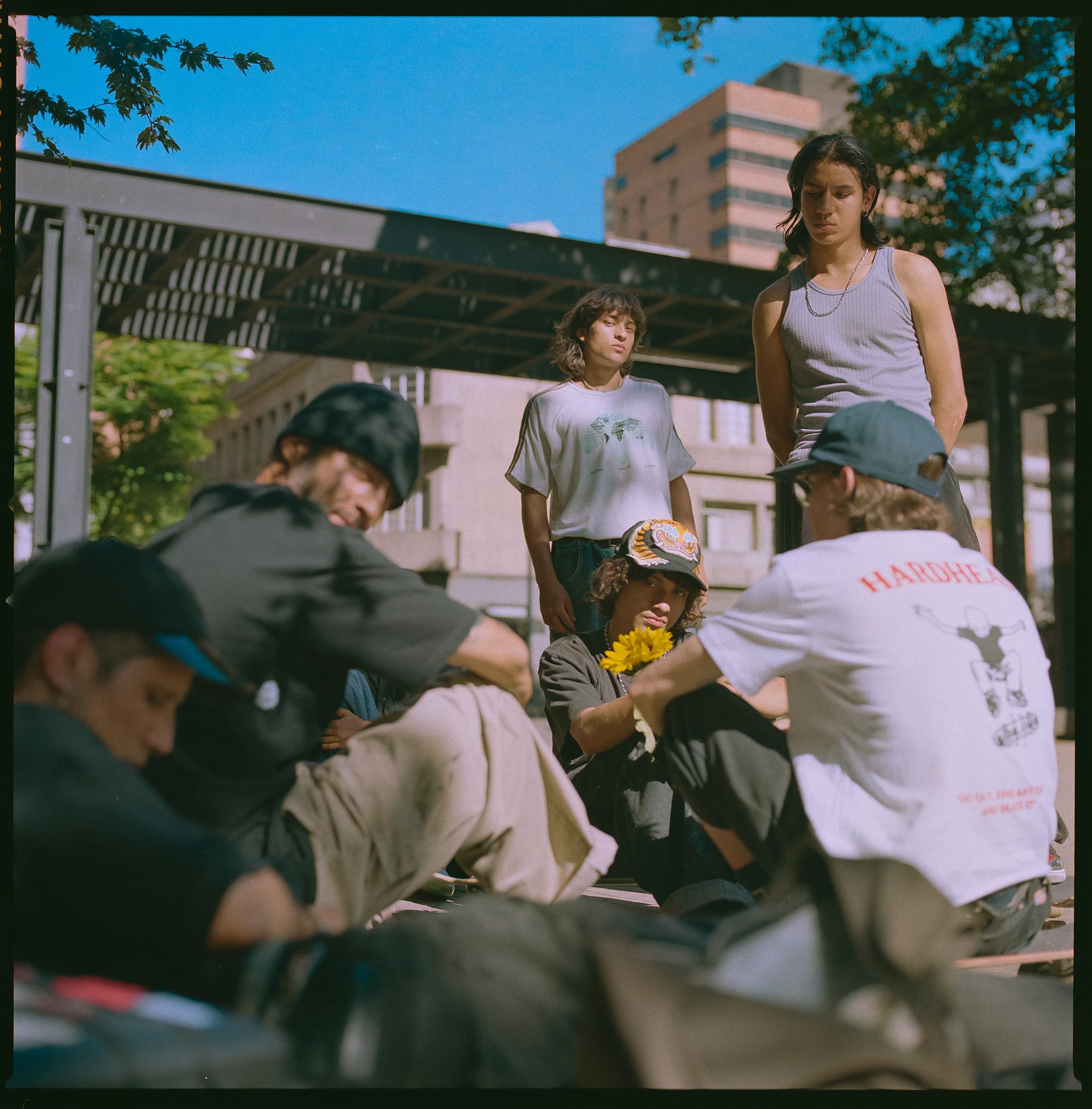
Decades after war erupted on Medellín’s streets, the city has recovered from this past, and become a hub for youth culture, and at the core of “Touching Ground” are the life stories of local people, one of which is Ronnie’s. “I grew up in a loving family, full of joy. Inside our house, I felt safe. But outside, there was a war taking place between cartels, guerillas, paramilitaries and government, all fighting to control different territories,” he says. “You saw dead people all the time. Kids around me were selling drugs, shooting each other and going to jail. So I always had this fear that something terrible was going to happen, no matter how normal a life I tried to live. I had nightmares and anxiety all the time. The barrio could have a beautiful energy—people supported each other and shared things—but we were also living in a warzone. It was only when I grew up and went to other neighborhoods that I realized where I lived was not normal, and, even in the same city, other people were living completely different lives.”

Due to those childhood experiences, Ronnie tells me, he grew up under a veil of silence, and there is a sense throughout “Touching Ground” of suppressed energies finally bursting through the surface, like vegetation through concrete. “When everything around you is so violent, I think people in Colombia often choose silence. Don’t talk to anybody, don’t open the window, don’t open the door, don’t tell anybody what you see, because if you talk somebody might kill you. So I chose silence for most of my life, and that affected me in its own way. I was too afraid to express myself. Eventually I realized I couldn’t live like this anymore.”
While the skateboarding community in Medellín is a fascinating and worthy subject in its own right, it also provides a crucial metaphor for the whole project. “It is an activity that is all about facing fear and failure head on,” says Luxenberg. “When I discovered skateboarding as a teenager, it opened my mind to new worlds,” adds Ronnie. “The people I met through it were marginal, countercultural, punks: they were against the government, violence, war and all these things. In the barrios, people who were too poor to buy their own skateboard would share them with others. Discovering this community had a profound effect on me, and I finally felt like I could express myself.”
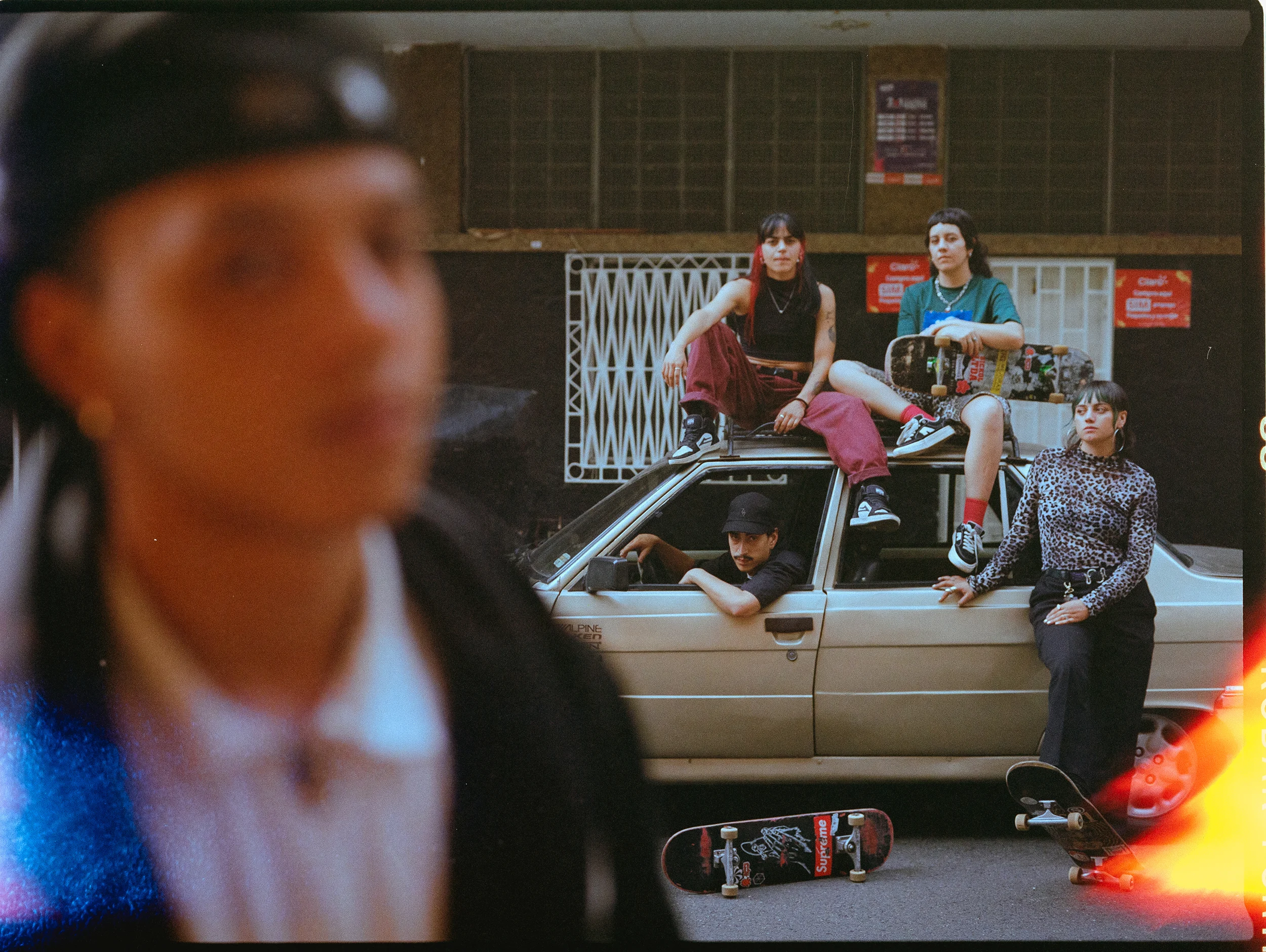
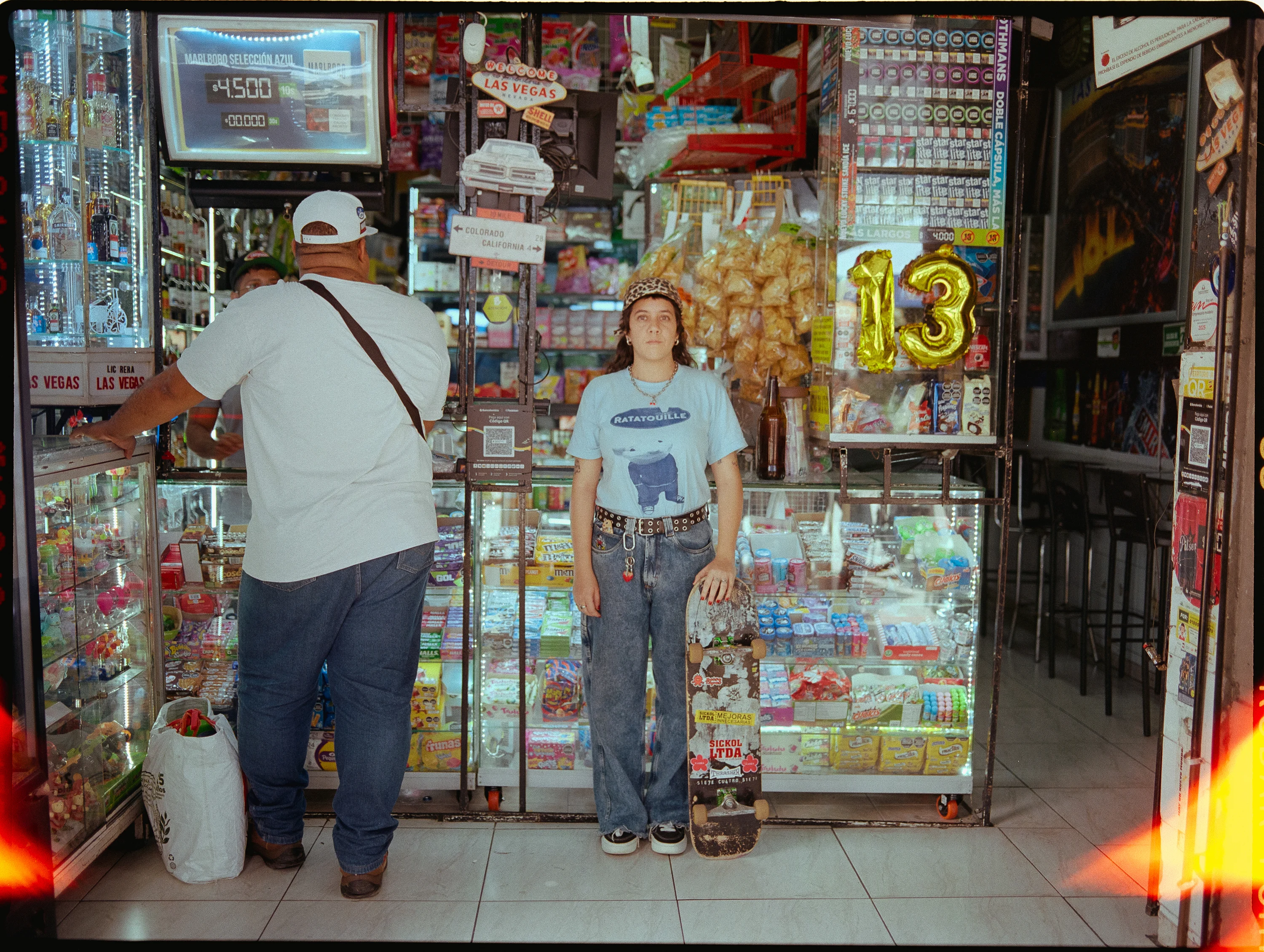
In one of the photos, Ronnie sits on the roof of a red-brick building in the barrio, the same one where he grew up during those troubled years of urban warfare. Behind him, small square houses stretch up the mountain, dotted with verdant trees. In December, Ronnie and Lauren are going to throw an exhibition and party in his neighborhood. “I think it’s gonna be so meaningful for the people from my neighborhood, because it wasn’t just me that experienced that war—everyone felt it in a super hard way.”
As the interview draws to a close, I ask what venue they’ve chosen for the event. “The area near my home used to be a zone of war,” Ronnie says, “but people there are trying to find a way to heal what happened through art, culture and community. That is where we’re going to do our exhibition.”

